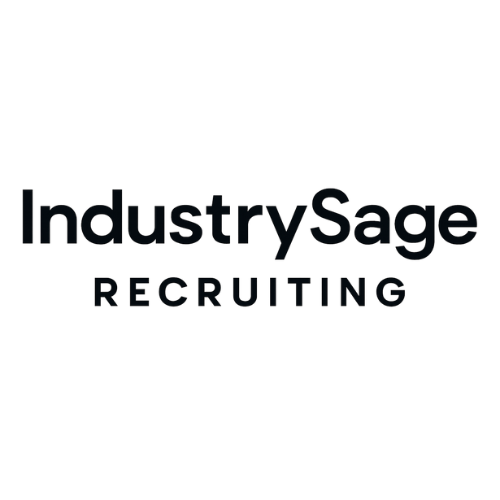Manufacturing companies face significant challenges in today’s competitive labor market. While the pressure to maintain production levels remains constant, hasty hiring decisions can lead to costly mistakes and operational disruptions. From overlooking cultural fit to neglecting internal talent, these common recruitment missteps often result in high turnover rates and decreased productivity. Understanding these pitfalls is essential for manufacturing leaders who aim to build resilient, high-performing teams in an evolving industrial landscape.
Rushing to Fill Positions Without a Clear Strategy
Urgency often drives manufacturing companies to make hasty hiring decisions that prove costly in the long run. When production demands spike or key positions suddenly become vacant, organizations frequently abandon structured hiring processes in favor of quick fixes. This reactive approach ranks among the most common hiring mistakes manufacturing companies make.
Without a clear recruitment strategy, manufacturers risk overlooking critical qualification requirements, cultural fit considerations, and long-term retention factors. These recruiting errors typically manifest in higher turnover rates, reduced team productivity, and increased training costs. Manufacturing recruitment tips emphasize the importance of maintaining detailed job specifications and candidate evaluation criteria, even during pressing circumstances.
A strategic hiring approach requires manufacturers to develop thorough position profiles, establish consistent evaluation methods, and maintain a talent pipeline before urgent needs arise. This proactive stance helps companies avoid panic hiring while ensuring candidates possess both technical capabilities and organizational alignment.
Neglecting Company Culture in the Hiring Process
Manufacturing companies frequently overlook cultural fit during candidate evaluations, focusing solely on technical skills and experience. This oversight can lead to increased turnover, team friction, and reduced productivity, even when hiring technically qualified candidates.
Culture misalignment manifests in various ways: employees who resist established processes, struggle with communication styles, or clash with management approaches. These issues often surface after the initial training period, leading to costly separations and renewed recruitment efforts.
To prevent cultural mismatches, manufacturers should clearly define their organizational values, work environment expectations, and team dynamics during the hiring process. Structured interviews should include questions that assess cultural alignment alongside technical capabilities. Additionally, involving current team members in the interview process can help evaluate how well candidates will integrate into existing workflows and relationships. This thorough approach to candidate evaluation helps guarantee new hires not only possess the required skills but also contribute positively to the company’s cultural fabric.
Overlooking Internal Talent Development and Promotion
While companies often invest significant resources in external recruitment, many fail to recognize the untapped potential within their existing workforce. Manufacturing organizations frequently overlook skilled employees who could be developed into leadership roles through targeted training and mentorship programs.
This oversight not only increases hiring costs but also dampens employee morale and retention rates. Current employees already understand company processes, culture, and operational nuances – advantages that external hires must develop over time. Additionally, internal promotions demonstrate clear career advancement paths, encouraging workforce loyalty and motivation.
Manufacturing firms should implement structured development programs that identify high-potential employees and provide them with necessary technical and leadership training. Regular skills assessments, cross-training opportunities, and clear promotion criteria help create a robust internal talent pipeline. When companies prioritize internal talent development alongside external recruitment, they create a more sustainable and engaged workforce while reducing the risks associated with external hires.
Relying Too Heavily on Technical Skills Alone
Companies frequently prioritize technical expertise above all other qualifications when hiring for manufacturing positions, overlooking essential soft skills and cultural fit factors that often determine long-term success. While technical proficiency remains vital, manufacturing roles increasingly require collaboration, adaptability, and strong communication abilities.
Technical skills can be taught and developed, but traits like leadership potential, problem-solving aptitude, and teamwork mentality are more challenging to instill. Manufacturing environments demand employees who can work effectively across departments, adapt to new technologies, and contribute to continuous improvement initiatives. These capabilities extend beyond technical knowledge.
Modern manufacturing facilities operate with interconnected teams, advanced technology systems, and complex workflows. Candidates who possess both technical abilities and strong interpersonal skills are better positioned to navigate these dynamics successfully. By expanding hiring criteria beyond technical qualifications, manufacturers can build more resilient, adaptable, and cohesive teams that drive operational excellence and innovation.
Using Outdated Recruitment Methods and Channels
Despite rapid technological advances in the broader business world, many manufacturers continue to rely on traditional recruitment methods that fail to reach today’s skilled workforce effectively. Posting exclusively on general job boards, using dated applicant tracking systems, or depending solely on word-of-mouth referrals greatly limits access to qualified candidates.
Modern manufacturing talent increasingly uses professional networking platforms, industry-specific job sites, and mobile-optimized application processes. Companies that neglect these channels miss opportunities to connect with tech-savvy professionals who could bring valuable skills to their operations. Additionally, outdated recruitment practices often lack the sophisticated targeting and analytics capabilities necessary to identify and attract candidates with specialized manufacturing expertise.
To remain competitive, manufacturers must embrace contemporary recruitment tools, including social media platforms, virtual hiring events, and automated screening processes that streamline candidate evaluation while maintaining the human element essential for evaluating cultural fit and long-term potential.
Underestimating the True Cost of Bad Hires
The financial impact of a poor hiring decision extends far beyond the initial recruitment costs. Manufacturing companies often fail to calculate the extensive expenses associated with bad hires, including lost productivity, training investments, team morale disruption, and potential safety risks.
When an unsuitable employee joins the manufacturing floor, the ripple effects can be severe. Quality control issues may arise, leading to increased scrap rates and customer complaints. Other team members must often compensate for underperforming colleagues, resulting in overtime costs and burnout. Equipment damage due to improper handling can trigger expensive repairs and production delays.
The departure of a mismatched hire initiates another costly cycle of recruitment, onboarding, and training. Industry statistics suggest that a bad hire can cost manufacturers between 30% and 150% of the employee’s annual salary, depending on their role and responsibility level. These figures emphasize the critical importance of implementing thorough screening processes and partnering with manufacturing-focused recruitment specialists.
